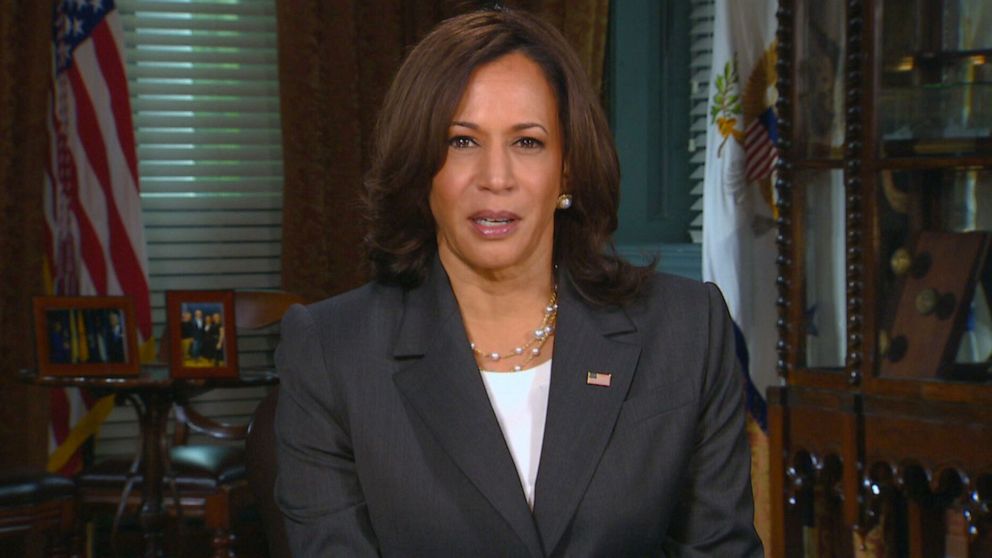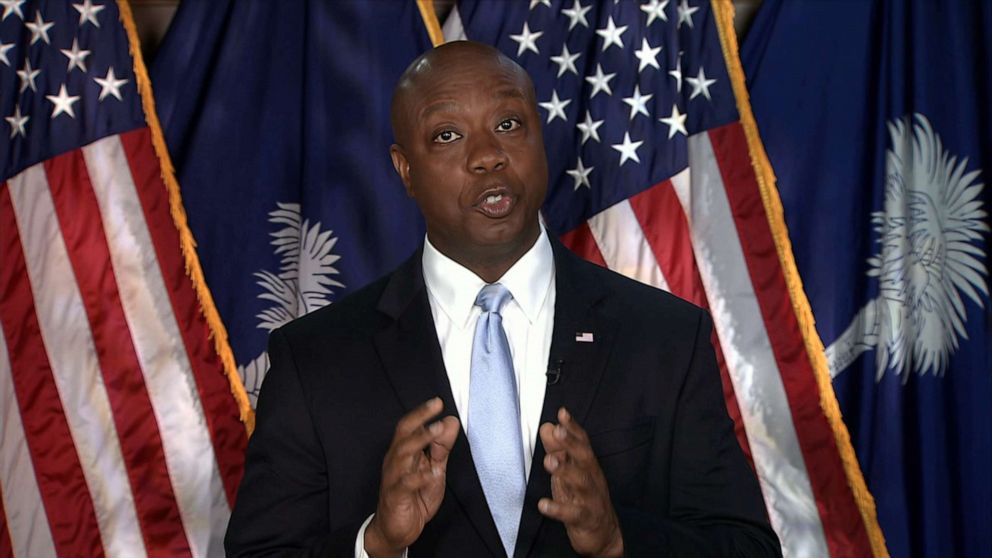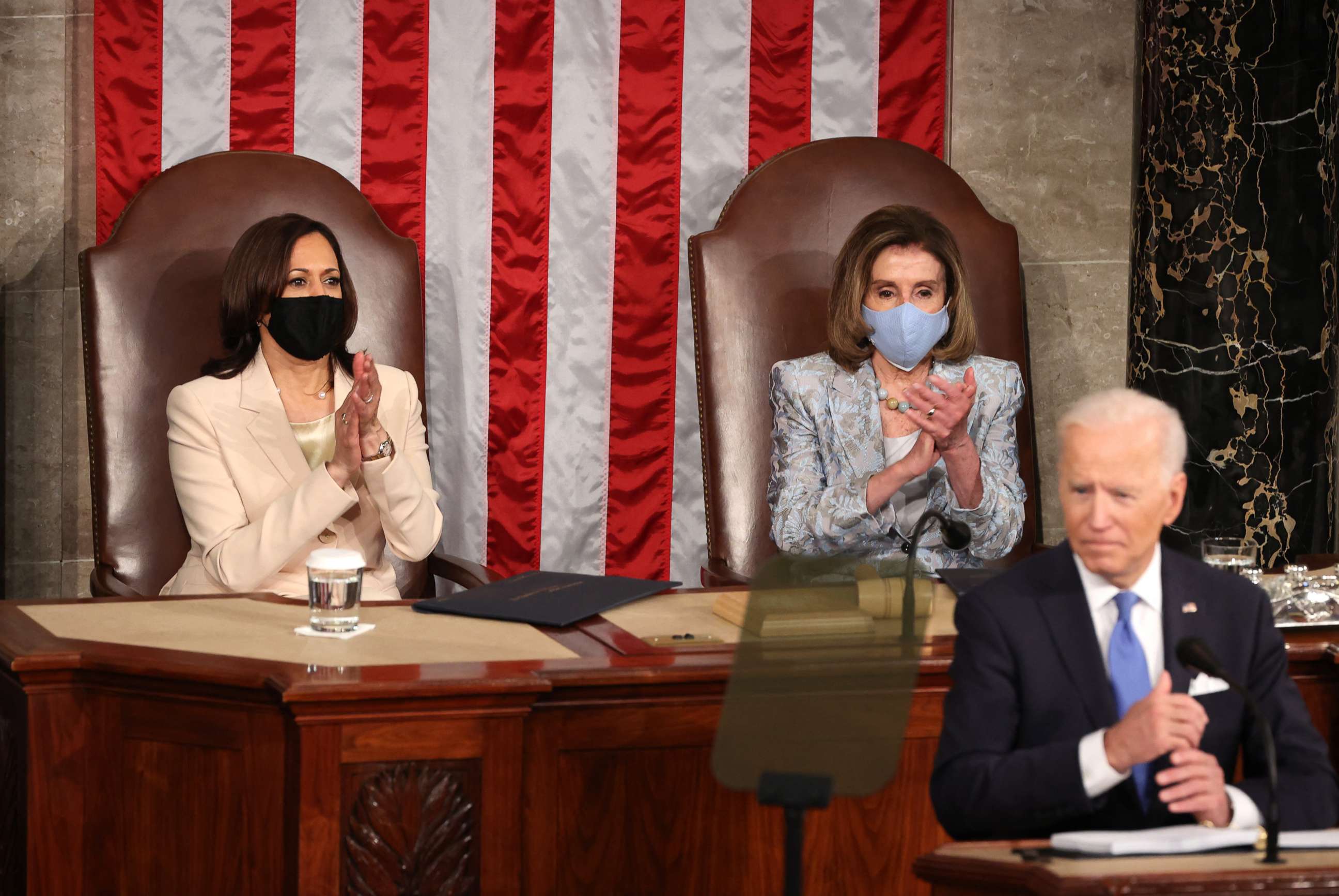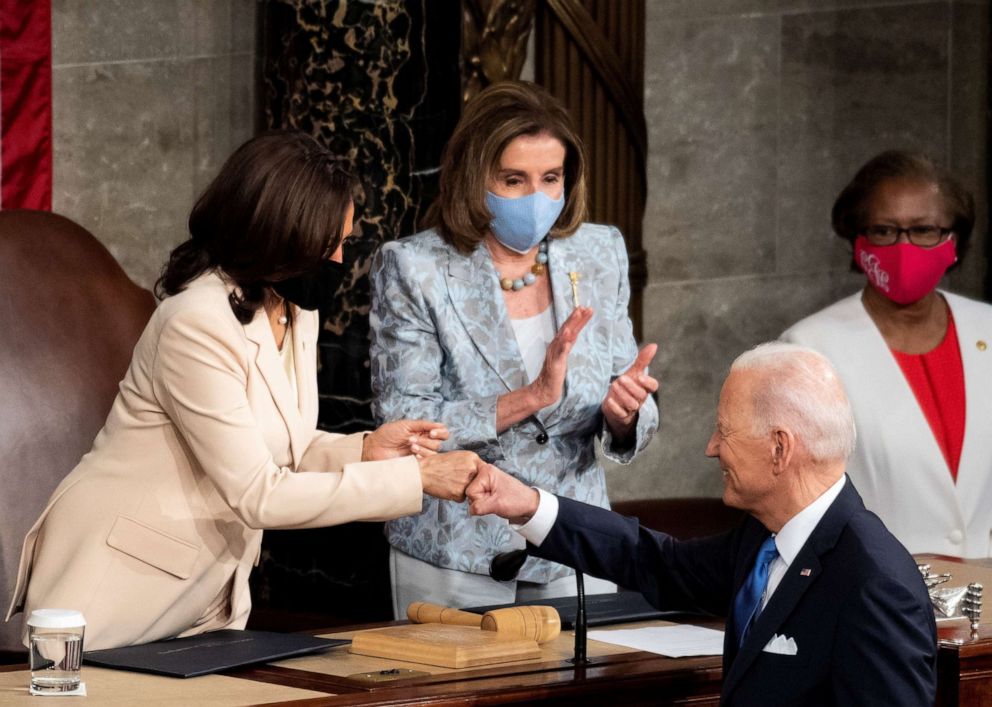Vice President Kamala Harris: We must 'speak truth' about history of racism in America
Vice President Kamala Harris said Thursday in an exclusive interview with ABC's "Good Morning America" that she did not think the United States was a "racist country" but that it was important to "speak the truth" about the role racism has played in the nation's history.
Harris, the first Black vice president, was responding to GOP Sen. Tim Scott, R-S.C., who on Wednesday night delivered the Republican response to President Joe Biden's address to a joint session of Congress.

Scott, the only Black Republican senator, said "America is not a racist country" and took issue with what he called fighting "discrimination with different types of discrimination" and trying "to use our painful past to dishonestly shut down debates in the present."

"No, I don't think America is a racist country," Harris told "Good Morning America" co-anchor George Stephanopoulos. "But we also do have to speak truth about the history of racism in our country and its existence today."
The vice president said that "we want to unify the country, but not without speaking truth and requiring accountability, as appropriate."
"These are issues that we must confront, and it doesn't--it does not help to heal our country to unify us as a people to ignore the realities of that," she said.

The vice president praised Biden for calling white supremacy terrorism in his speech and noting U.S. intelligence agencies have determined it to be "the most lethal terrorist threat to the homeland today."
During her interview with "Good Morning America," Harris also addressed the Biden administration's $2.3 trillion infrastructure plan.
Asked by Stephanopoulos how much the White House was willing to compromise with Republicans, who are widely opposed to Biden's expansive package and the president's ideas about how to pay for it, Harris would not say.
But she did say the administration was "very serious" and "very sincere in our hope that we can reflect the bipartisan nature of the American people on these issues."

"We have been in many meetings in the Oval Office with Republicans and Democrats together, talking about all of these issues and inviting their feedback, inviting their ideas," Harris said. "We're very serious about that -- and very sincere in our hope that we can reflect the bipartisan nature of the American people on these issues, and come together in a way that is about, again, investing in families, investing in job creation, investing in the competitiveness of our country, vis-a-vis the world."
On Wednesday night, Biden laid out the components of his plan, including expanding broadband internet access, then said, "I am asking the vice president to lead this effort."
It was widely reported that the president had tasked Harris with shepherding the entire infrastructure proposal through Congress, but Thursday morning, Harris's office said that Biden was only talking about Harris "taking a lead on expanding broadband access" -- not the whole plan.
Biden had also previously asked Harris to lead the diplomatic effort to stem the flow of migration from Central America, to which he referred in his speech. The president did not address the situation on the southern border, though.
When pressed by "Good Morning America" co-anchor Robin Roberts about why Biden omitted any mention of the situation there, Harris would not say.
Instead, she laid out her work to address the lack of opportunity and threats causing many to flee the region.
“The way that we are then dealing with this," she said, "is to say, 'Hey, let's, one, understand these are our neighbors in the Western Hemisphere, and let's do what we can to give the folks there some hope, that if they stay, help is on the way.'"
Harris explained she has been working with Cabinet secretaries, including Commerce Secretary Gina Raimondo and Agriculture Secretary Tom Vilsack, as well as working with other world leaders to recommit to helping the region.
“It's not a new issue but we are prepared to make the investment and to get in there for the long haul to do what is necessary to address the reasons people flee,” Harris added.



